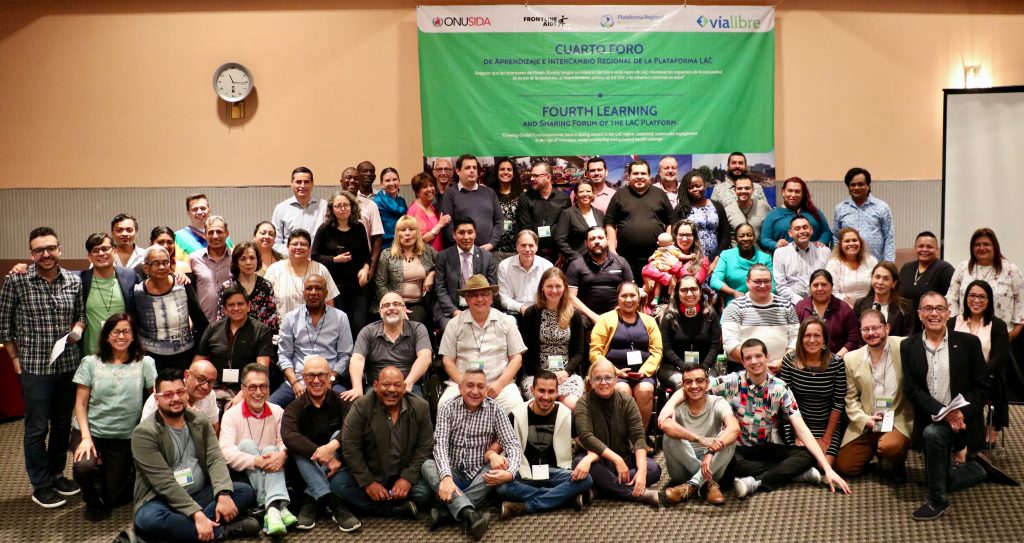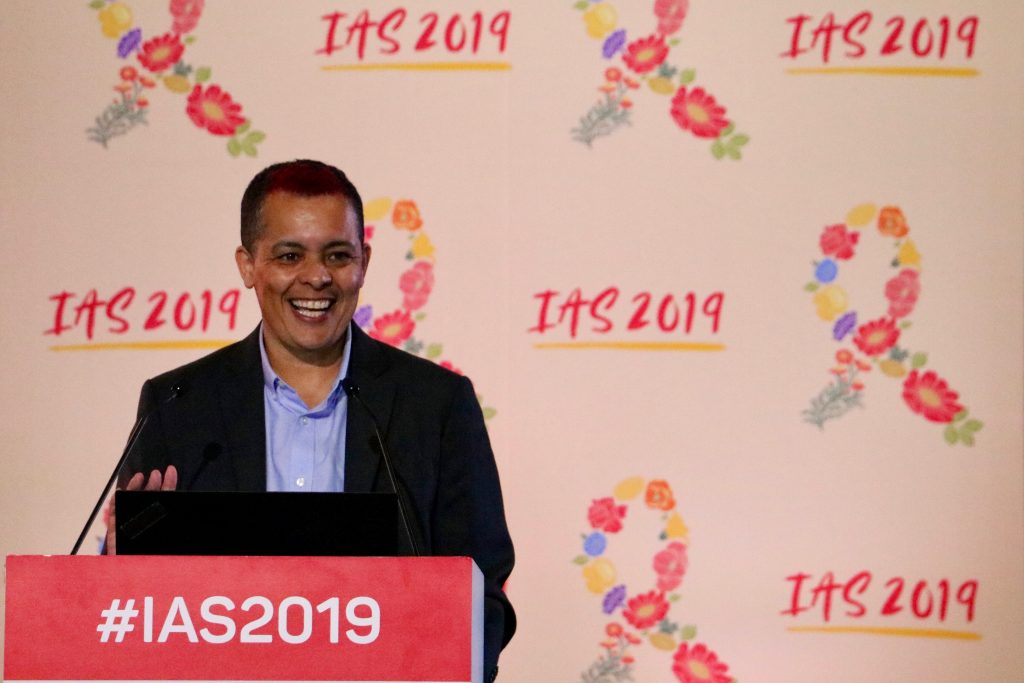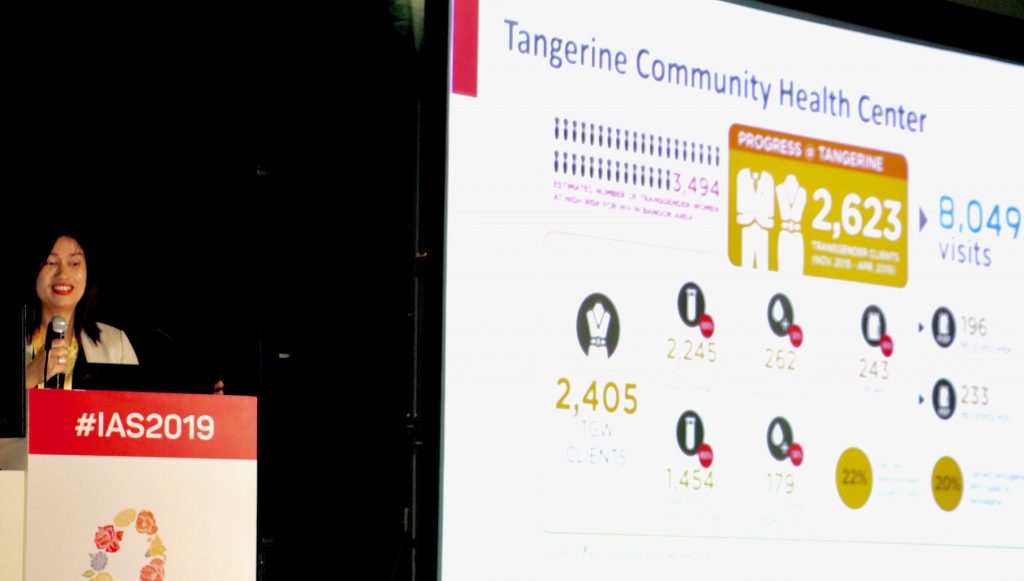The inclusion of trans communities in the global HIV response is growing, and with it, a greater understanding of the necessity for differentiated service delivery, community-led services, and a holistic approach that integrates HIV and sexual health care with trans-related healthcare.
As one of the most marginalised Key Populations (KP) affected by HIV, trans people can face multiple forms of discrimination from healthcare workers as well as from society as a whole, and stigma can affect uptake of sexual health services even when they are available. Issues can include: safety – travelling between home and clinic can be dangerous as many trans people, trans women in particular, can face violence in public, including from the police; finance – if travel is dangerous, it can result in the necessity to take taxis, which many cannot afford; stigma, which can include refusal to deliver services or apparent stock-outs of medication and commodities e.g. lubricant, condoms; etc, particularly if they are also a sex worker.
One project that focuses on ensuring greater inclusion of trans communities in the global HIV response is the Global Fund’s Community, Rights and Gender – Strategic Initiative (CRG-SI). Over the past 2 years, as part of our funding from the CRG-SI project, GATE has been working closely with the LAC Regional Platform to facilitate Technical Assistance (TA) requests to the Global Fund (GF) for projects to increase the capacity of trans communities to engage in GF processes in countries out of which the Global Fund is transitioning. The purpose of such TA requests are to ensure that trans communities have the knowledge, skills and capacity to continue to provide HIV healthcare service delivery to trans communities, and to hold accountable governments in providing funding for such services.
As part of the CRG-SI project, GATE attended the 4th Learning and Sharing Forum of the LAC Platform from 18-20 July, the purpose of which was “Ensuring Global Fund investments have a lasting impact in the LAC region: sustaining community engagement in the age of transition, social contracting and universal health coverage”. GATE also attended the IAS Conference 2019, which was held in Mexico City from 21-24 July, and the Community Forum from 20-21 July as part of our wider work on HIV Trans Leadership and including trans communities in the global HIV response.
4th LAC Platform Forum: 18-20 July

The 4th Learning and Sharing Forum of the LAC Platform provided in-depth information, knowledge and skills from community engagement in Global Fund-related processes through the CRG-SI project. Civil Society Organisations (CSOs) and community groups who submitted successful requests for short-term support from the CRG SI Technical Assistance program shared their experiences and best practices, including Milly from Guyana Trans United, and Derricia from Belize, whose applications were facilitated by GATE and the LAC Platform jointly.
The overall experience from the communities and CSOs was one of empowerment, with a platform being given to community voices, training and information provided to new leaders in HIV, TB and Malaria, and increased capacity to engage with Country Coordinating Mechanisms (CCM). The Technical Assistance program allowed CSOs to analyse the situation on the ground, define service packages and find best models of work for the community.
The collaboration between local trans organizations, Vía Libre (LAC Platform) and GATE was productive and beneficial for all involved, with a CSO hub being developed in Belize to allow smaller organizations to be represented, have their voice heard and receive training on outreach and implementation of HIV/AIDS programs. The TA program strengthened the smaller organisations and allowed the larger organisations to widen their reach, with the implementation of a population size estimate of MSM and trans communities opening doors to advocacy with government departments. In Guyana, the initial needs assessment from GATE helped to inform the TA request, with lack of capacity being a focus in their proposal. The TA program provided skills on how to apply for funding in order to continue their work. Read more about GATE’s CRG-SI project.
In addition to communities and CSOs, there were presentations from representatives from the Global Fund, the Regional Platforms Coordinator of the Global Fund CRG-SI and Technical Assistance providers. One workshop was delivered on how to prepare applications for the CRG SI Technical Assistance Program based on the online interactive tool developed by the LAC Platform, and another focused on identifying ways of engaging in monitoring and evaluation of Global Fund transition plans.
The third day offered a workshop on Universal Health Coverage to give participants conceptual and strategic tools to engage in debates and national decision processes aimed at implementing, expanding and/or improving universal health coverage (UHC), with particular focus on how these processes impact on the response to HIV, TB and malaria in the context of the Global Fund.
IAS 2019: 21-24 July
Although both are run by the International AIDS Society (IAS), the IAS Conference has a more scientific focus in contrast to the more intersectional focus on science, advocacy and human rights at the International AIDS Conference. With this in mind, it was disappointing, but not surprising, to find that most panels focused on transgender (trans) communities featured only cisgender (cis) presenters, despite the presence of many trans scientists and researchers.
It was encouraging to see so many panels focused on trans communities, but the disingenuity of panels such as “Perspectives of transgender women on HIV prevention and care” featuring the voice of only one trans woman was frustrating, to say the least. At the end of the session, several trans scientists and researchers made interventionshighlighting this negation of trans voices. Read GATE’s full article on this session.

On a more positive note, Asa Radix, Senior Director of Research and Education at the Callen-Lorde Community Health Centre gave a presentation at the Opening Plenary Session on “Implementation science around transgender issues”, which included some limited statistics on trans men, a community that is currently completely ignored in HIV research data.
Kritima Samitpol of the Thai Red Cross AIDS Research Centre also presented an Oral Poster Discussion on “Integrating gender-affirming hormone treatment into HIV services facilities access to HIV testing, syphilis testing, PrEP, and other sexual health services among transgender women in Thailand”, focusing on the Tangerine Community Health Centre in Thailand as a highly successful case study.

Overall, the message from the presentations on trans communities was that gender-affirming healthcare is the best route to reaching trans populations for HIV service delivery and other sexual health services. However, what many researchers presenting their data failed to take into account are the many barriers that exist preventing access to gender-affirming healthcare across the world, including requirements for psychiatric treatment and diagnosis, and “real life experience” i.e. living in role for a year before being granted access to hormones, the cost of hormones and access to services, as well as the myriad of issues relating to accessing basic living standards such as housing, food and safety from violence.





